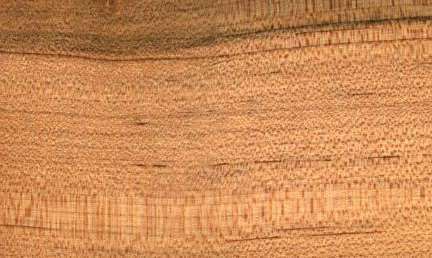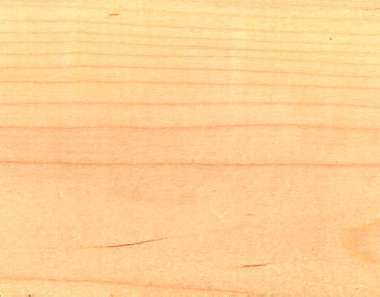  
Red maple (Acer rubrum)
Family: Aceraceae
Common names: Carolina red maple, Drummond red maple, Maple, Red maple, Scarlet maple, Soft maple, Swamp maple, Water maple, White maple
Distributed in: Canada, United States (North America)
Common uses: Boxes and crates, Building materials, Casks, Chairs, Chests, Concealed parts (Furniture), Cooperages, Core Stock, Desks, Dining-room furniture, Dowell pins, Dowells, Drawer sides, Fine furniture, Floor lamps, Flooring, Furniture , Furniture components, Furniture squares or stock, Furniture, Handles: general, Hatracks, Interior construction, Kitchen cabinets, Living-room suites, Musical instruments, Musical instruments: piano, Office furniture, Packing cases, Pallets, Paneling , Paneling, Plywood, Pulp/Paper products, Pulpwood, Radio - stereo - TV cabinets, Railroad ties, Rustic furniture, Shade rollers, Sporting Goods, Stools, Tables , Textile equipment, Truck bodies, Turnery, Utility furniture, Vehicle parts, Veneer, Wainscotting, Wardrobes
Product sources: Red maple is ranked second to Sugar maple in popularity, and is the most valued of the three leading soft maples. It is generally less expensive than Sugar maple, and is readily available in the low price range.
Environment profile: Widespread
Tree size: Tree height is 20-30 m
Colors: the heart isWhite, White to creamand the sapwoodWide sapwood, Yellow.The grain isWavy, the textureFine
Natural durability: Susceptible to attack from termites (Isoptera), Susceptible to insect attack
Odor: No specific smell or taste
Kiln Schedules: Dry at a slow speed
Kiln Drying Rate: Naturally dries slowly
Drying Defects: Ring failure, Wetwood
Ease of Drying: Thick Stock Requires Care
Comments: General finishing qualities are rated as good
Boring: Good results
Gluing: Fairly difficult to glue
Mortising: Poor to Very Poor
Nailing: Pre-Boring Recommended, Very Good to Excellent
Planing: good
Resistance to Impregnation: Resistant sapwood
Response to hand tools: Moderate working qualities
Sanding: Poor to Very Poor Results
Veneering qualities: Veneers easily, Veneers moderately easy
Steam bending: Satisfactory
Screwing: Fair to Good Results, Fairly Easy to Very Easy; Turning: Very good
Polishing: Very Good to Excellent; Staining: Very Good to Excellent;
- Numerical data Metric
- Numerical data English
- Strength properties
- References
 |
 |
 |
 |
| Item |
Green |
Dry |
Metric |
| Specific Gravity |
0,42 |
0,42 |
|
| Density |
|
608 |
kg/m3 |
| Bending Strength |
547 |
904 |
kg/cm2 |
| Crushing Strength |
27 |
68 |
kg/cm2 |
| Hardness |
|
445 |
kg |
| Impact Strength |
78 |
91 |
cm |
| Shearing Strength |
|
114 |
kg/cm2 |
| Stiffness |
94 |
110 |
1000 kg/cm2 |
| Tangential Shrinkage |
8 |
|
% |
| Radial Shrinkage |
3 |
|
% |
| Weight |
592 |
496 |
kg/m3 |
| Maximum Load |
0,63 |
0,77 |
cm-kg/cm3 |
| Toughness |
|
|
cm-kg |
| Static Bending |
|
|
kg/cm2 |
|
 |  |  |  | | Item | Green | Dry | English | | Bending Strength | 7784 | 12862 | psi | | Crushing Strength | 392 | 980 | psi | | Density | | 38 | lbs/ft3 | | Hardness | | 982 | lbs | | Impact Strength | 31 | 36 | inches | | Maximum Crushing Strength | 3411 | 6218 | psi | | Shearing Strength | | 1634 | psi | | Stiffness | 1344 | 1572 | 1000 psi | | Work to Maximum Load | 9 | 11 | inch-lbs/in3 | | Specific Gravity | 0.42 | 0.42 | | | Weight | 37 | 31 | lbs/ft3 | | Radial Shrinkage | 3 | | % | | Tangential Shrinkage | 8 | | % | | Volumetric Shrinkage | 12 | | % | |
Density (dry weight) = 38-45 lbs/cu. ft.
Modulus of Elasticity (stiffness) = low
Shearing strength (parallel to grain) = low
Modulus of Elasticity (stiffness) = medium
Hardness (side grain) = soft
Toughness-Hammer drop (Impact strength) = medium
Bending strength (MOR) = medium
Bending strength (MOR) = low
Work to Maximum Load = very low
Shrinkage, Tangential = fairly large
Shrinkage, Radial = small
Shearing strength (parallel to grain) = very low
Modulus of Elasticity (stiffness) = very low
Max. crushing strength (stiffness) = very low
Density (dry weight) = 31-37 lbs/cu. ft.
Crushing strength = high
Compression strength (parallel to grain) = high
Bending strength (MOR) = high
Although Red maple is considered to be a member in the soft maples group in the lumber market, it is about 5% to 7% heavier than the other soft maples
Arno, J. 1992. Acer rubrum - Red maple. In A Guide to Useful Woods of the World, Flynn Jr., J.H., Editor. King Press Publishing Co., Portland, Maine. 1994. Pages 19-20.Betts, H.S.,1959,American Woods- Maple,USDA Forest Service, American woodsBoone, R.S., C.J. Kozlik, P.J. Bois and E.M. Wengert. 1988. Dry Kiln Schedules for Commercial Woods: Temperate and Tropical. United States Department of Agriculture, Forest Service, Forest Products Laboratory, General Technical Report FPL-GTR-57, Madison, Wisconsin.Brown, W.H.,1978,Timbers of the World: - No.7 North America,TRADACanadian Forestry Service. 1981.Canadian Woods - Their Properties and Uses. Third Edition. E.J. Mullins and T.S. McKnight, Editors. Published by University of Toronto Press, Toronto, Canada.Forest Products Research Laboratory, U.K.,1945,A Handbook of Empire Timbers,Department of Scientific and Industrial Research Forest Products ResearchHMSO, 1981. Handbook of Hardwoods, 2nd Edition. Revised by R.H. Farmer. Department of the Environment, Building Research Establishment, Princes Risborough Laboratory, Princes Risborough, Aylesbury, BuckinghamshireI.U.F.R.O.,1973,Veneer Species of the World,Assembled at F.P.L. Madison on behalf of I.U.F.R.O. Working Party on,Slicing and Veneer CuttingJackson, A. and D. Day.1991.Good Wood Handbook - The Woodworker's Guide to Identifying, Selecting and Using the Right Wood. Betterway Publications, Cincinnati, Ohio.Kaiser, J. 1989. Wood of the Month - Maple: The Star of Autumn, the Sweetness of Spring. Wood of the Month Annual, Volume 1, Supplement to Wood and Wood Products, Page 37-38.Little, E.L.1980.The Audubon Society Guide to North American Trees - Eastern Region.Published by Arthur A. Knopf, New York.Markwardt, L.J., Wilson, T.R.C.,1935,Strength and related properties of woods grown in the United States,U.S.A. Department of Agriculture Technical Bulletin,No.479Mullins, E.J. and McKnight, T.S.,1981,Canadian Woods Their Properties and Uses,University of Toronto Press 3rd EditionPanshin, A.J. and C. deZeeuw. Textbook of Wood Technology. McGraw-Hill Series in Forest Resources. McGraw-Hill Book Company, New York.Timber Development Association Ltd.,1955,World Timbers (3 Vols.,Timber Development Association Ltd.U.S.D.A. Forest Service,1974,Wood Handbook,U.S.A. Department of Agriculture, Forest Service Handbook,72USDA. 1987. Wood Handbook:Wood as an Engineering Material. Agriculture Handbook No. 72. United States Department of Agriculture, Forest Service, Madison, Wisconsin.USDA. 1988. Dry Kiln Operators Manual, Preliminary Copy. Forest Service, Forest Products Laboratory, Madison, Wisconsin.Wolcott, G.N.,1950,An Index to the Termite Resistance of Woods,Agricultural Experimental Station, University of Puerto Rico Bulletin,No.85
|










